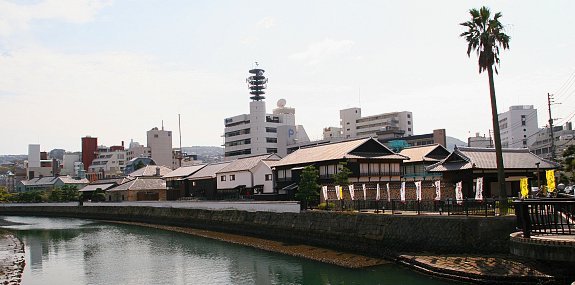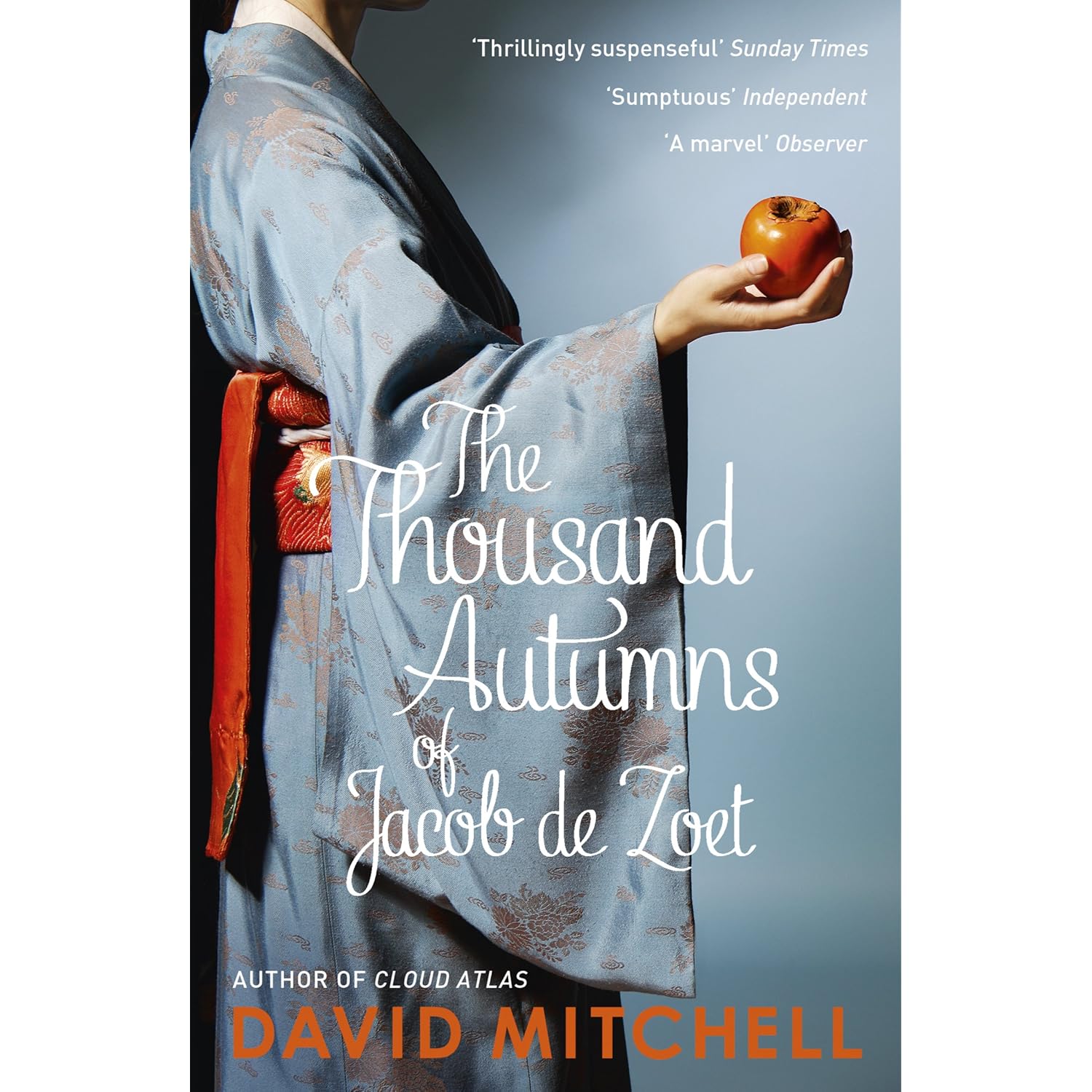But the front cover of The Thousand Autumns of Jacob de Zoet caught my eye as I'm interested in Japanese culture (I've studied Japanese since my teen years and have been to Japan a couple times), and I recognise David Mitchell's name but have never read The Cloud Atlas or any other of his books before. I have to say I really enjoyed it, but my feelings about this book is about as complex as his list of characters!
The book takes place at the end of the 18th and beginning of the 19th centuries, on Dejima, a Dutch trading post on an artificial island off Nagasaki. It follows a number of characters, namely Jacob de Zoet, a young pious Dutchman working with the trading company to prove and make a name for himself so that when he returns home he can be accepted by his love's family and win her hand. However, on Dejima he falls in love with a young medical student, a Japanese midwife with a scarred face named Aibagawa Orito.
 |
| A map of Dejima, the 17th century artificial island built by merchants |
This story contained cultural elements from historical Japan, Holland, and Britain, and for that reason it added another dimension of 'cognitive skill' to get through as well. The characters' language is rich with references to items and concepts that are foreign both in time and space, and it was sometimes a bit frustrating to read on knowing that you weren't completely understanding the richness the author obviously knew more about through his obviously extensive research. Mitchell had lived in Japan when he was young, and very skillfully takes you to 18th century Japan, with sights, smells, images - but doesn't slow much to explain them all. My Japanese was good enough to understand phrases used in the book, but I still felt a bit lost in certain circumstances when you just had to accept that there was some richer meaning that a 17th century Japanese, or Dutch, person would have understood much better.
My biggest criticism of the book is related to this - Mitchell introduces characters to the story at an alarming rate, and often all at once, whose names are difficult to pronounce and hard to remember. While it makes for realistic and believable situations, the reader (or I, anyways) became frustrated at the lack of hand-holding to point to who was saying what. Often speech was said and not marked - and when five or so new characters are talking, my brain just couldn't handle who was who - the frustration becoming heightened, when all of those characters in turn became important to the story in some way or another.
 |
| Dejima is a real, and you can visit it if you're ever in the Nagasaki area! |
But the plot was truly epic, and enjoyable. The characters were dynamic and believable, and interesting. The imagery was great as well, and Mitchell illustrated his story in my mind beautifully. It was a long and complex book, but a fantastic ride. And even though it was fiction, I was learning about 18th century botany, medicine, and international trade and politics at the same time!
I'd rate this book 4 out of 5 stars - thoroughly enjoyable but definitely not an 'easy read'!






I'm a big David Mitchell fan and while I definitely liked this book I think Cloud Atlas was better. I saw Mitchell read a few years ago and he was such a humble, sweet guy.
ReplyDelete